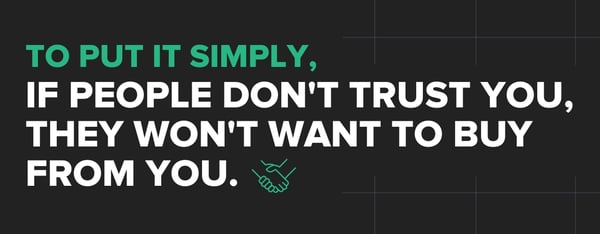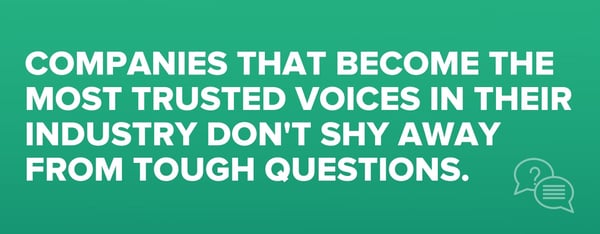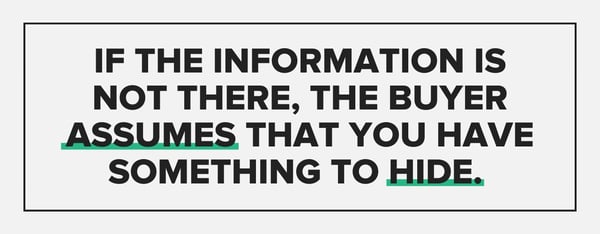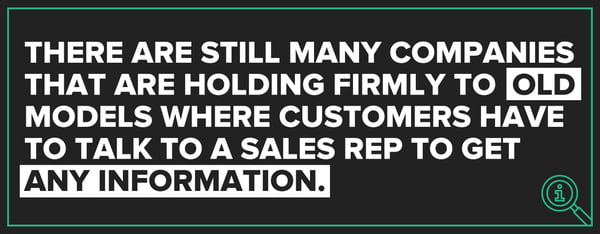LinkedIn's offered a sneak peek at some upcoming changes.
* This article was originally published here
Make Money Online Fast Discover proven ways to make money online quickly with affiliate marketing, legit side hustles, digital courses, and expert tips. Learn how to start earning today — no experience needed. Explore honest reviews of top programs, essential tools, and high-converting strategies to build income from home or anywhere in the world. Perfect for beginners, side hustlers, freelancers, and anyone ready to create real financial freedom.
Introduction Want to make money online fast? Whether you need extra cash or want to build a full-time income, the internet offers endless ...
LinkedIn's offered a sneak peek at some upcoming changes.
Some new Twitter Blue incentives are now rolling out.
Ensure you’re getting the most value out of your marketing efforts with these landing page tips.
Yes, it can be annoying to have to check another device o app to log-in. But it's an important consideration for online safety.
Will the more authentic social approach of BeReal actually lead to a shift in user behavior and interest?
Get ready for some pretty new checkmarks to be hitting your Twitter streams.
The case could establish new legal precedent for taking action against scam activity.
YouTube's looking to give its in-stream shopping options a big promotional push.
With more social interactions shifting to messaging apps, you may also need to realign your marketing approach.
YouTube's looking to help improve channel engagement with personalized content displays.
The option could help you get your Reels in front of a more engaged, interested audience.

A quick question for all the business owners out there: Will Instagram be a fundamental part of your marketing strategy in 25 years?
How about podcast ads?
You don't know, do you?
Of course not. Instagram didn't exist 25 years ago, so it's hard to know what will happen five years in the future — let alone 25.
OK, a second question: In 25 years, will trust be fundamental to your business success?
Yes, of course it will be.
This, my friends, is an important distinction to make. Platforms, tools, tactics — these things come and go. But principles remain.
Trust is a foundational principle that transcends all industries and markets. Principles have no beginning and no end.
It has been vital to success for centuries and will continue to be for centuries more. When we are talking about success on a platform — when we talk about ranking well in Google searches or having a strong Facebook presence — we’re really talking about trust.
Do buyers trust what you’re saying? Do they trust your expertise?
If yes, the platforms will reward you. If not, you'll slip down the rankings.
Smart businesses realize that platforms and tactics should be used to build trust with their audience. Because, I believe, trust is the currency that all businesses share.
But trust isn't just an abstract concept. It's something you can build, measure, and, when you have to, repair.
Below, I'll explain
Businesses tend to ask themselves: How do I bring in more customers?
But what they really are saying is this: How do I build trust with my audience in order to bring in more customers?
It’s so easy to use the shorthand version, but the more we do, the more we forget about the full question we’re asking. We forget that trust is the true currency of business.

If people don’t trust you, they won’t feel like you have their best interest in mind or that you will actually deliver on your promises. They won’t trust you to solve their problems.
To put it simply, if people don’t trust you, they won’t want to buy from you.
Below, I'll share specific examples of businesses actively building trust in their marketplace. Hopefully, they will inspire you to do the same.
Now, in the interest of full transparency, our company IMPACT helps businesses build trust through their sales and marketing, so we've seen this work in a lot of industries.
We offer consulting services to a small number of businesses each year, some of which are included below. But our mission is to help organizations improve their "trust index" with buyers. We believe this is critical to long-term growth. And it starts with a first impression.
Imagine you walk onto a car dealership lot and a salesman comes striding out. Do you expect that salesman to have your best interests at heart, or are you anticipating the whole “Have I got the perfect car for you” routine?
Now granted, used car salesmen have a pretty bad reputation, but it's not unlike the experience when someone comes to your website for the first time.
When customers find you online, they immediately expect your sales pitch. Site visitors are expecting your bias, but you can disarm them by pointedly showing neutrality.
How do you show your site visitors that you have their interests in mind?
Focus more on their needs than your celebrating your own excellence. Focus on educating instead of pitching.
We tell ourselves that the buyer doesn’t really want to know how we feel about a product because we’re the ones that are selling it.
If that were true, the buyer would never ask us questions. They’re still holding out a little bit of hope that we might be real and honest with them.
Unfortunately, they’re usually disappointed.
So, let's surprise our buyers with honesty and transparency. Here's how.
To me, trust begins when a business decides to obsess over customer questions, worries, and concerns.

In every industry, there are questions we hope prospects ask, and questions we hope they don’t ask.
Companies that become the most trusted voices in their industry don't shy away from the tough questions. Instead, they lean in, openly addressing topics like price or product shortcomings.
When you address these topics on your website and in your content, potential customers take notice and trust you before they have any direct contact with you.
If you wait to address these issues until you’re speaking with prospects directly, you’ll find yourself playing catch-up.
By that point, they’ve already begun to form opinions about you, good or bad.
But if you address something before it's asked, you’re being proactive and controlling the narrative.
Customers are more likely to trust you if you’re being upfront — especially about drawbacks, price, or other topics most businesses want to avoid.
When you speak to customers you’ve not yet met, you need to do it in the style they want to hear it.
This means two things:
First, format matters. If your customers want video but you’re only writing content, that produces a disconnect. More on this later.
Second, timing matters. Chances are, your customers don’t want to wait until the first sales call to learn whether your service is the right fit for them.
Rather, they want the information on-demand, consumable at whatever stage in their buyer’s journey they are in.

If the information is not there, the buyer assumes that you have something to hide. Businesses that have something to hide are not seen as trustworthy.
Today’s modern consumer expects to be able to buy in a way that’s easy and convenient.
There are still many companies that are holding firmly to old models where customers have to talk to a sales rep to get any information. Meanwhile, disruptors are looking at everything that causes frustration during the buying process and trying to alleviate it.

Companies like Uber and Zappos have turned well-established industries upside down.
Twenty years ago, no one would want to buy a pair of shoes without trying them on first. What if they don’t fit? Well, Zappos looked at that, built a customer-centered return policy, and alleviated that pain point.
People hated getting into a cab not knowing how much their journey would cost them. Uber built a model to solve for it.
In doing so, each operates from a place of trustworthiness built on a simple idea: Customers trust organizations that understand and solve their problems.
According to a recent study from Gartner, 33% of all buyers would prefer an entirely “sales-free” sales experience — and that number’s even higher among millennials and Gen Z-ers.
Companies that are not selling the way people want to buy are going to find themselves getting left behind.
The companies that are willing to sell the way people want to buy will win business — and build trust.
For thousands of years, people have been saying that seeing is believing.
Today, video is easier to produce than ever before, and it truly allows your prospects to see inside your company.
With video, they can get to know your team, your values, your differentiators.
Here's an example from IMPACT client Furniture Fair that explains the difference between good, better, and best sofas.
Notice how you’re immediately drawn into the video because it shares information in a way that's straightforward and clear.
Right off the bat, Monique conveys both authority ("I've been selling furniture for over 30 years") and empathy (acknowledgment of different budgets and needs).
These are core building blocks of trust, and the fact that they come in a video make them all the more powerful.
The thing is, most businesses in any given marketplace are all saying the same thing: “It’s our people that make us different. We have the best quality, we have the best service. We care.”
When everyone is saying the same thing, it just becomes noise — until someone is willing to stand out by showing what makes their company unique.
If you can show how your quality compares, how great your people are, then they speak for themselves. You build trust because people can see the proof for themselves.
Some manufacturers are hesitant to talk about their processes, but it builds trust with your audience to show what you do.
Instead of saying something is proprietary, imagine saying, “Let me show you exactly how we build our product. Let me introduce you to the people who will fulfill your order.”
If you’re willing to show that, it means that you’re going to stand behind what you do.
You're not always going to get it right. As hard as you try, some customers will end up having a bad experience. But use this as a learning experience. The best businesses see negative feedback from customers and clients as a blessing.
It’s easy to take things personally and get defensive, or to blame the customer for being difficult, but there’s a good chance that the customer is at least partially right.
If you get a negative review online, maybe a dozen other people are thinking the exact same thing but didn’t take the time to write it down.
But if you can listen to your customers, if you can own your past missteps and shortcomings, it can go a long way toward building trust in the marketplace.
To me, the best example of this in the past decade or so is Domino’s Pizza. With slumping sales and mounting customer complaints, Domino’s launched a campaign that took full ownership of the situation.
With the Oh Yes We Did campaign, Domino’s acknowledged its critics and used their feedback to chart a new course.
In the time since Domino's chose this direction, it's gone from $1.7 million to $17 million market cap.
This model can be followed in every single industry. If your business has negative reviews — and customers recognize this — you can say, “You know what, those bad reviews helped us identify some weak areas, and here’s what we’ve done to improve.”
That way, in one swift motion you have validated your past customers and built trust with your future customers.
If you’re willing to be transparent, to embrace video, to listen to your customers, past, present, and future, you can build trust.
You can become the most trusted voice in your space — and we are all in the business of trust.
Platforms, tools, tactics, these things come and go. Use the ones that make sense for your business, but remember that you should be using them to build trust. In everything you do, endeavor to be honest and transparent — and put your customers at the center. That way, their needs will inform your choices, and they'll know you're there to help them.
This is the key to steady, long-term growth.
What does Snap's decision to step away from Web3 mean, in a broader context?
Some handy pointers to help get you started with YouTube Shorts.
A new way to encourage engagement with your LinkedIn updates.
The research shows that adding a level of friction in the process can lead to more consideration in online engagement.
The new tools provide a heap of insight into key trends in the app, by region.
Reddit is a key hub for discussion around the latest tech, including mobile carriers and developments.
Will Elon Musk actually buy Twitter? The messy, and public drama continues.
LinkedIn's latest data shows a significant trend towards remote job postings.
Some handy tips to help improve your Reddit approach.
In the last segment of our Social Media Listening survey report, we look at how marketers can improve their monitoring process.
The new recurring notifications process is a significant shift in how Meta has enabled message notifications in the past.
YouTube is the only digital platform to achieve the MRC's top content accreditation.
Why is Facebook removing these data tracking tools? It could be in line with evolving regulations.
The new button will make it easier for users to activate captions in video tweets.
In the post-COVID environment, perspectives on branding are changing.
The new insights will provide more specific info on what's driving the performance of your YouTube channel.